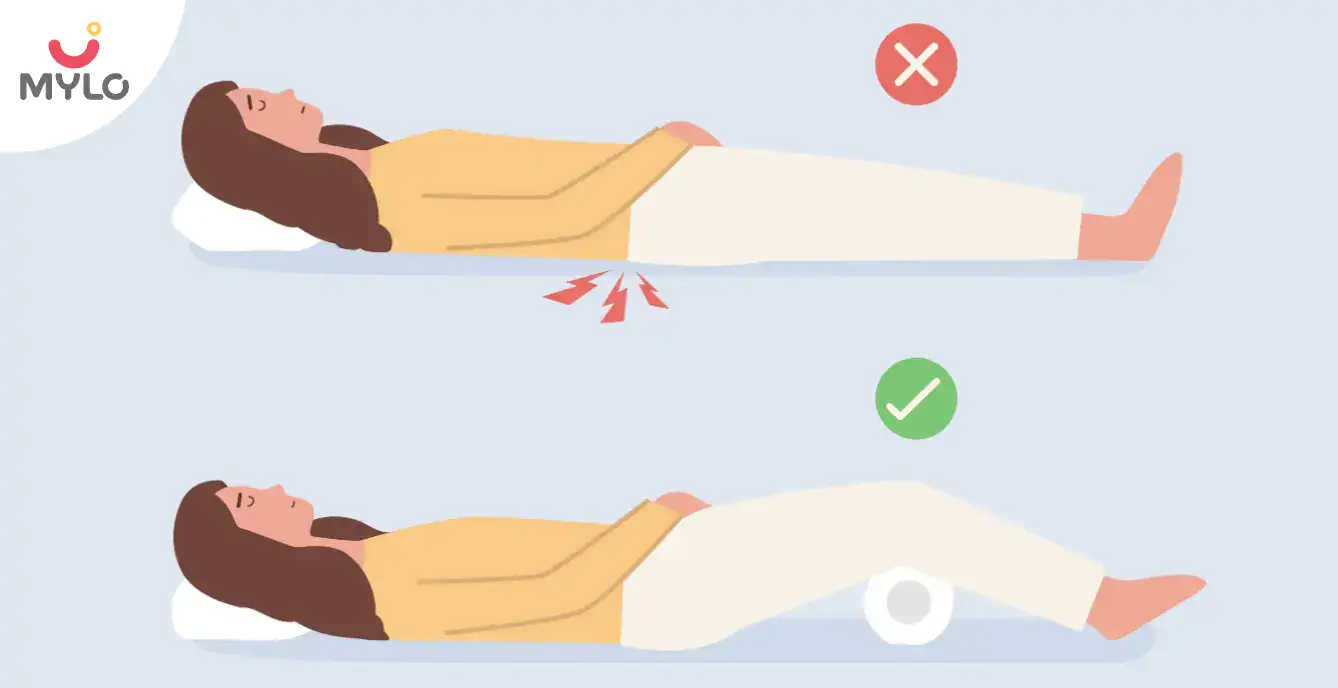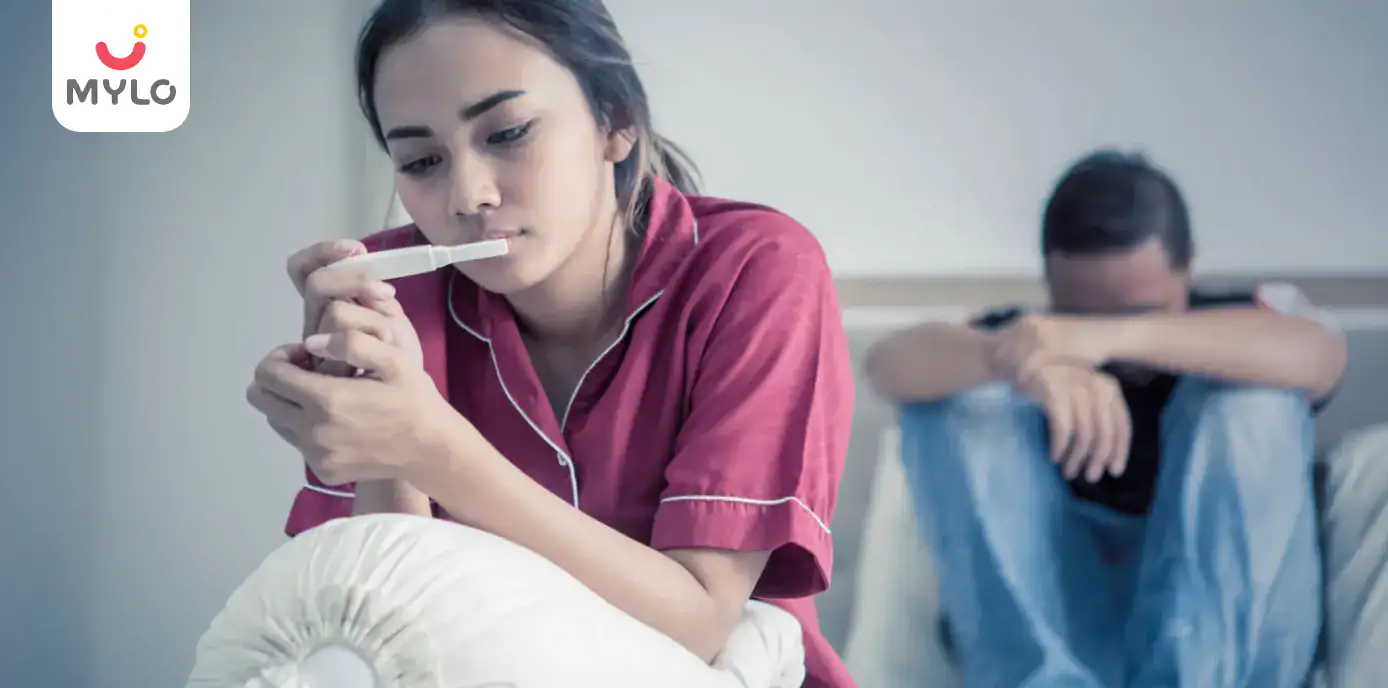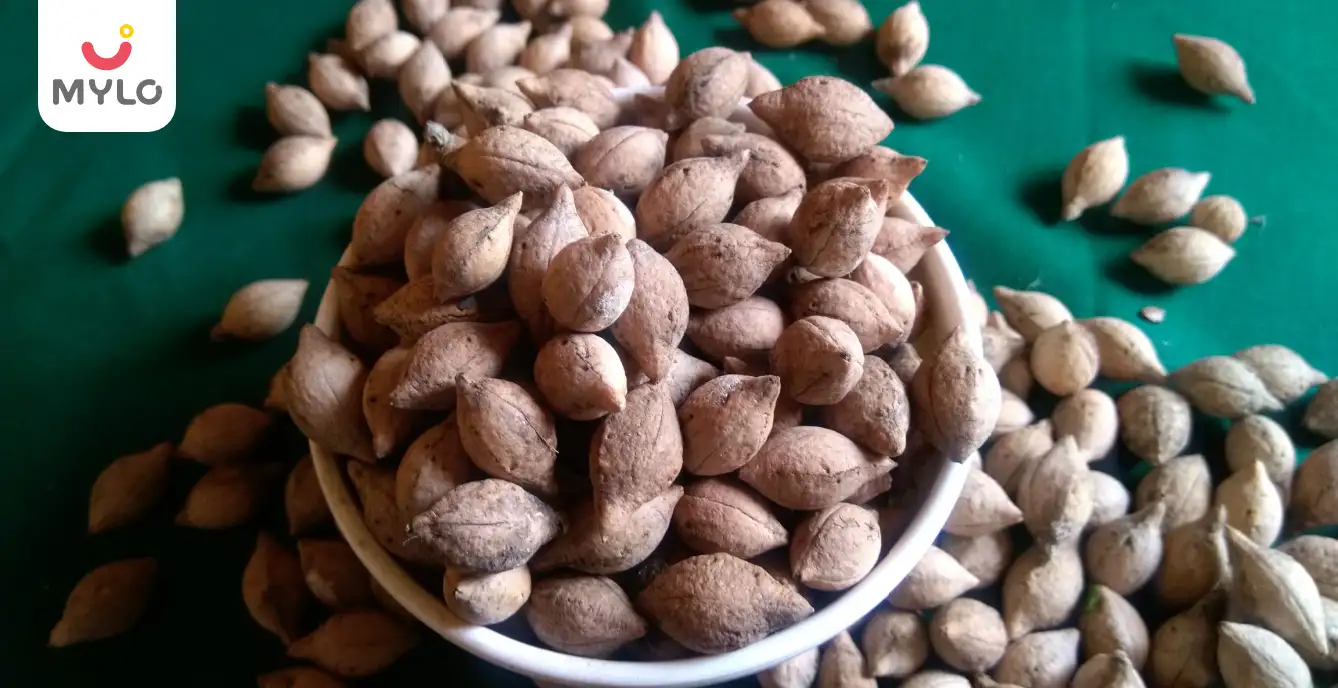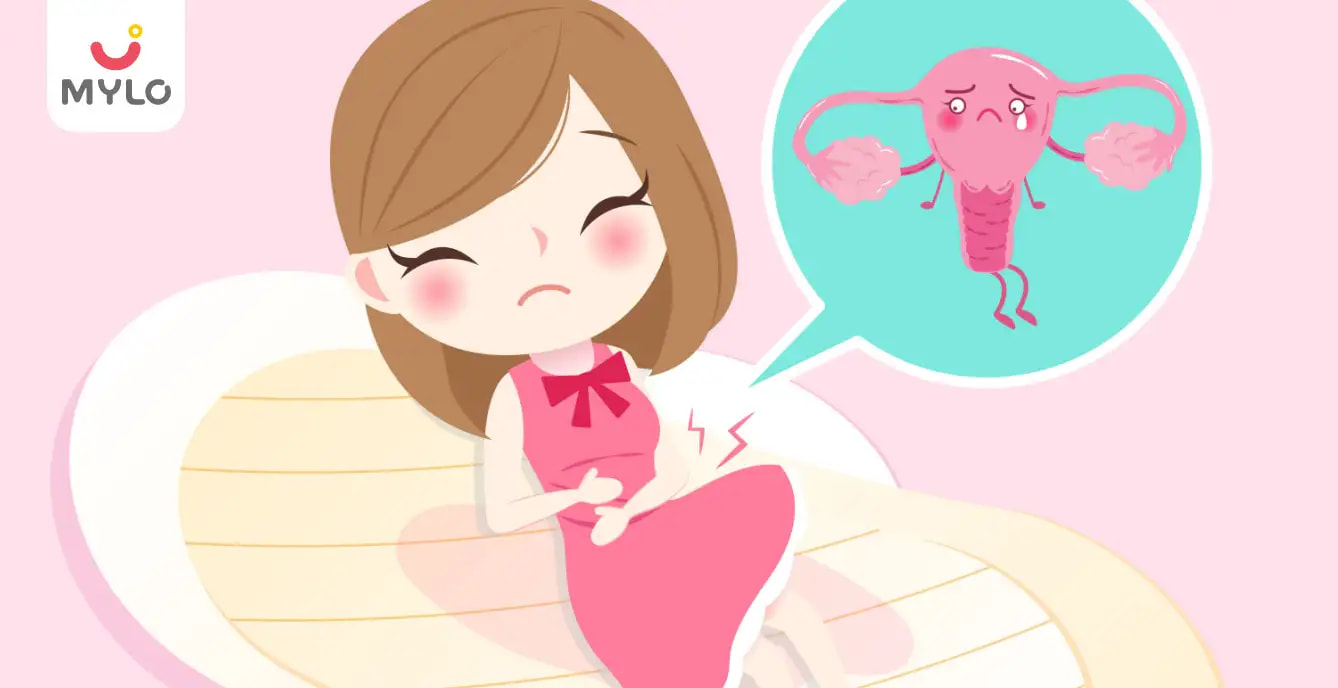Get MYLO APP
Install Mylo app Now and unlock new features
💰 Extra 20% OFF on 1st purchase
🥗 Get Diet Chart for your little one
📈 Track your baby’s growth
👩⚕️ Get daily tips

OR


Article Continues below advertisement
- Home

- Premature Ovarian Failure: How it Affects Female Fertility and What You Can Do About It
In this Article
- What is Premature Ovarian Failure?
- What are the Symptoms of Premature Ovarian Failure?
- What are the Causes of Premature Ovarian Failure?
- 1. Genetic factors
- 2. Autoimmune disorders
- 3. Radiation or chemotherapy
- 4. Surgical interventions
- 5. Environmental factors
- 6. Age-related factors
- How Premature Ovarian Insufficiency Affects Female Fertility?
- 1. Irregular or absent menstrual periods
- 2. Decreased egg quantity and quality
- 3. Difficulty achieving pregnancy
- 4. Increased risk of infertility
- 5. Early menopause
- Diagnosis and Testing for Premature Ovarian Failure
- 1. Medical history and physical examination
- 2. Blood tests
- 3. Ovarian ultrasound
- 4. Genetic testing
- 5. Other tests
- Treatment Options for Premature Ovarian Insufficiency
- 1. Hormone replacement therapy (HRT)
- 2. Fertility preservation
- 3. Psychological support
- 4. Bone health management
- 5. Symptom management
- Closing Thoughts
- References
Getting Pregnant
Premature Ovarian Failure: How it Affects Female Fertility and What You Can Do About It
Updated on 19 June 2023



Medically Reviewed by
Dr. Shruti Tanwar
C-section & gynae problems - MBBS| MS (OBS & Gynae)
View Profile

Premature Ovarian Failure (POF), a condition that can have a significant impact on a woman's fertility and overall reproductive health. In this write-up, we will explore the causes of premature ovarian failure, symptoms, and effects of POF, as well as the available treatment options and strategies to cope with the challenges it presents.
Whether you are personally affected by this condition or seeking knowledge on behalf of a loved one, this article aims to provide valuable insights and empower you to make informed decisions about managing POF and preserving fertility.
What is Premature Ovarian Failure?
Premature Ovarian Failure (POF), also known as primary or premature ovarian insufficiency, is a condition in which the ovaries stop functioning normally before the age of 40. It is characterized by a significant decline in ovarian function, leading to a decrease in the production of eggs and hormonal imbalances. Unlike natural menopause, POF occurs prematurely and can have a profound impact on a woman's fertility, hormone levels, and overall reproductive health.
Article continues below advertisment
What are the Symptoms of Premature Ovarian Failure?
The symptoms of POF can vary from woman to woman. Here are some common symptoms to watch out for:
- Irregular or missed periods
- Hot flashes and night sweats
- Vaginal dryness
- Mood swings and emotional changes
- Decreased fertility
- Symptoms of menopause
You may like : Ovarian Cyst: Types, Causes, Symptoms and Treatment
What are the Causes of Premature Ovarian Failure?
The exact causes of Premature Ovarian Failure (POF) are not always clear. However, there are several factors that can contribute to this condition. Here are some common causes:
1. Genetic factors
Certain genetic conditions, such as Turner syndrome, Fragile X syndrome, and other chromosomal abnormalities, can increase the risk of POF.
2. Autoimmune disorders
In some cases, the immune system may mistakenly attack the ovarian tissue, leading to premature failure of the ovaries.
Article continues below advertisment
3. Radiation or chemotherapy
Cancer treatments involving radiation therapy or chemotherapy can damage the ovaries and disrupt normal ovarian function.
4. Surgical interventions
Surgical removal of the ovaries or certain ovarian surgeries may result in POF.
5. Environmental factors
Exposure to certain environmental toxins, chemicals, or pollutants may contribute to the development of POF.
6. Age-related factors
Although POF is considered premature, age can still be a contributing factor. As women age, the quantity and quality of eggs naturally decline, which can lead to POF.
How Premature Ovarian Insufficiency Affects Female Fertility?
Premature Ovarian Insufficiency (POI) significantly impacts female fertility. Here's how it affects fertility:
Article continues below advertisment
1. Irregular or absent menstrual periods
Women with POI often experience irregular or missed periods. This makes it difficult to predict ovulation and increases the challenge of timing intercourse for conception.
2. Decreased egg quantity and quality
In POI, the ovaries lose their normal function and produce fewer eggs than usual. The remaining eggs may have diminished quality, reducing the chances of successful fertilization.
3. Difficulty achieving pregnancy
Due to the reduced quantity and quality of eggs, the chances of natural conception are significantly reduced. Women with POI may experience difficulty getting pregnant even with regular unprotected intercourse.
4. Increased risk of infertility
POI is associated with an increased risk of infertility. While spontaneous pregnancies can still occur in some cases, assisted reproductive techniques such as in vitro fertilization (IVF) or egg donation may be necessary to achieve pregnancy.
5. Early menopause
POI often leads to an early onset of menopause, which means the cessation of menstrual periods and the end of reproductive capacity at an earlier age than expected. This can have emotional and psychological implications for women, as they may face the challenges of menopause earlier in life.
Article continues below advertisment
Diagnosis and Testing for Premature Ovarian Failure
Diagnosing POF involves various tests to assess ovarian function and hormone levels. Here are the common diagnostic procedures for POF:
1. Medical history and physical examination
The healthcare provider will discuss your symptoms, menstrual history, family history, and perform a physical examination to evaluate any signs of hormonal imbalances or other underlying conditions.
2. Blood tests
Blood tests are conducted to measure hormone levels that play a crucial role in ovarian function. These include follicle-stimulating hormone (FSH), luteinizing hormone (LH), estrogen, and anti-Müllerian hormone (AMH). Elevated FSH levels and low estrogen levels are indicative of POF.
3. Ovarian ultrasound
An ultrasound scan may be performed to assess the size and appearance of the ovaries. In POF, the ovaries may appear smaller and have fewer follicles.
4. Genetic testing
In some cases, genetic testing may be recommended to identify any underlying genetic abnormalities or chromosomal disorders that could be causing POF.
Article continues below advertisment
5. Other tests
Additional tests may be conducted to rule out other potential causes of ovarian dysfunction, such as thyroid function tests, autoimmune markers, and karyotyping.
Treatment Options for Premature Ovarian Insufficiency
Premature ovarian insufficiency (POI) can have a significant impact on fertility and overall well-being. While there is no cure for POI, there are treatment options available to manage its symptoms and improve quality of life. Here are some common approaches:
1. Hormone replacement therapy (HRT)
HRT involves taking estrogen and progesterone hormones in the form of pills, patches, or injections to replace the hormones that the ovaries are no longer producing. HRT can help alleviate menopausal symptoms and reduce the risk of osteoporosis and heart disease associated with low hormone levels.
2. Fertility preservation
If fertility is a concern, options such as egg freezing or embryo freezing can be considered before the onset of premature ovarian failure. These techniques involve retrieving eggs or embryos and preserving them for future use through in vitro fertilization (IVF) procedures.
3. Psychological support
Dealing with the emotional and psychological impact of POI is crucial. Counseling or support groups can provide a safe space to discuss concerns, manage stress, and cope with the emotional challenges associated with infertility.
Article continues below advertisment
4. Bone health management
Since low estrogen levels can increase the risk of osteoporosis, it's important to focus on maintaining good bone health. This can involve lifestyle modifications such as regular exercise, calcium and vitamin D supplementation, and avoiding smoking and excessive alcohol consumption.
5. Symptom management
Addressing the symptoms of POI, such as hot flashes, vaginal dryness, and mood changes, can be achieved through lifestyle changes, stress management techniques, and medications specifically designed to alleviate menopausal symptoms.
Closing Thoughts
Premature ovarian insufficiency can be a challenging diagnosis for women, as it not only affects fertility but also brings about various physical and emotional changes. However, with early detection and appropriate management, women with Premature ovarian failure can still lead fulfilling lives. Although there is no cure for POF, treatment options such as hormone replacement therapy, fertility preservation, psychological support, bone health management, and symptom management can help alleviate the symptoms and improve overall well-being.
References
1. Jankowska, K. (2017). Premature ovarian failure. Menopausal Review, 2, 51–56.
2. Sopiarz, N., & Sparzak, P. B. (2023). Primary Ovarian Insufficiency. PubMed; StatPearls Publishing.
Article continues below advertisment





Medically Reviewed by
Dr. Shruti Tanwar
C-section & gynae problems - MBBS| MS (OBS & Gynae)
View Profile


Written by
Madhavi Gupta
Dr. Madhavi Gupta is an accomplished Ayurvedic doctor specializing in Medical content writing with an experience of over 10 years.
Read MoreGet baby's diet chart, and growth tips

Related Articles
Related Questions
Influenza and boostrix injection kisiko laga hai kya 8 month pregnancy me and q lagta hai ye plz reply me
743 views
Hai.... My last period was in feb 24. I tested in 40 th day morning 3:30 .. That is faint line .. I conculed mylo thz app also.... And I asked tha dr wait for 3 to 5 days ... Im also waiting ... Then I test today 4:15 test is sooooo faint ... And I feel in ma body no pregnancy symptoms. What can I do .
747 views
Baby kicks KB Marta hai Plz tell mi
749 views
PCOD kya hota hai
1315 views
How to detect pcos
54 views
Related Topics
RECENTLY PUBLISHED ARTICLES
our most recent articles

Male Infertility
Erectile Dysfunction: What Causes It and How to Treat It
In Vitro Fertilization (IVF)
Positive Signs After Embryo Transfer: What to Look Out For

IVF Pregnancy
Sleeping Position After IVF & Other Precautions That Can Boost Your Chances of Success

Breastfeeding & Lactation
Disadvantages of Breastfeeding No One Tells You About

IVF Pregnancy
IVF Failure Reasons: Exploring the Challenges Couples Face with Infertility

Ayurveda & Homeopathy
Putrajeevak Beej: The Ancient Seed for Modern Health and Fertility
- Shivlingi Beej: The Ultimate Guide to Boosting Your Fertility Naturally
- Milk Thistle in Ayurveda: Unlock The Healing Potential and Health Benefits of This Herb
- Orchidopexy: All You Need to Know About Its Procedure, Risks, and Recovery
- Transvaginal Ultrasound: A Non-Invasive Tool for Early Detection of Reproductive Health Issues
- New Mom Diet Plan – Month 11 Week 42
- Ejaculatory Duct Obstruction: How It Affects Male Fertility and What You Can Do About It
- Testicular Ultrasound: What You Need to Know About the Procedure and Its Benefits
- Symptoms of Low AMH to Watch Out For: A Health Alert for Women Trying to Conceive
- Hysteroscopy: Everything You Need to Know About This Minimally Invasive Procedure
- Dalchini: How This Herb Can Make Way From Your Spice Rack to Your Medicine Cabinet
- Fenugreek Powder: Health Benefits of Fenugreek From Your Kitchen to Your Medicine Cabinet
- Moringa Powder: The Superfood You Need in Your Diet for a Healthy Lifestyle
- Genital Herpes: Causes, Symptoms, Risks & Treatment
- Ashokarishta: All You Need to Know About This Miracle Tonic for Women


AWARDS AND RECOGNITION
Mylo wins Forbes D2C Disruptor award
Mylo wins The Economic Times Promising Brands 2022
AS SEEN IN
















At Mylo, we help young parents raise happy and healthy families with our innovative new-age solutions:
- Mylo Care: Effective and science-backed personal care and wellness solutions for a joyful you.
- Mylo Baby: Science-backed, gentle and effective personal care & hygiene range for your little one.
- Mylo Community: Trusted and empathetic community of 10mn+ parents and experts.
Product Categories
baby carrier | baby soap | baby wipes | stretch marks cream | baby cream | baby shampoo | baby massage oil | baby hair oil | stretch marks oil | baby body wash | baby powder | baby lotion | diaper rash cream | newborn diapers | teether | baby kajal | baby diapers | cloth diapers |







